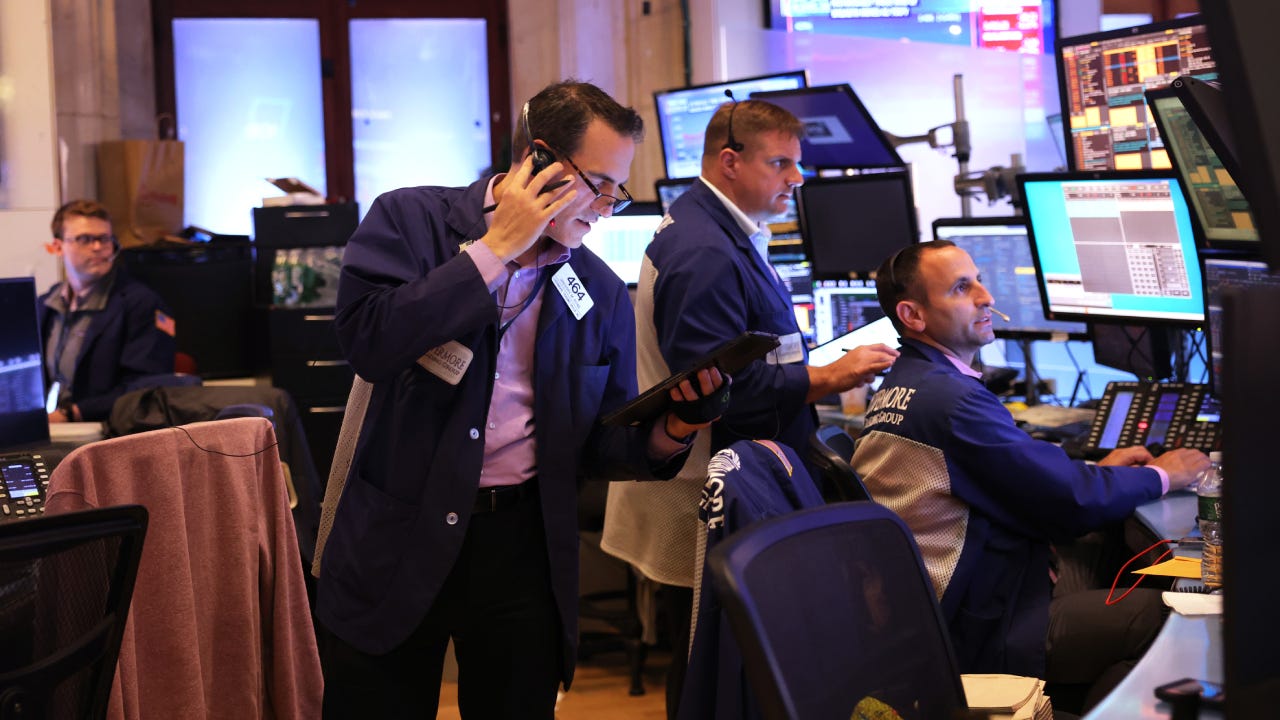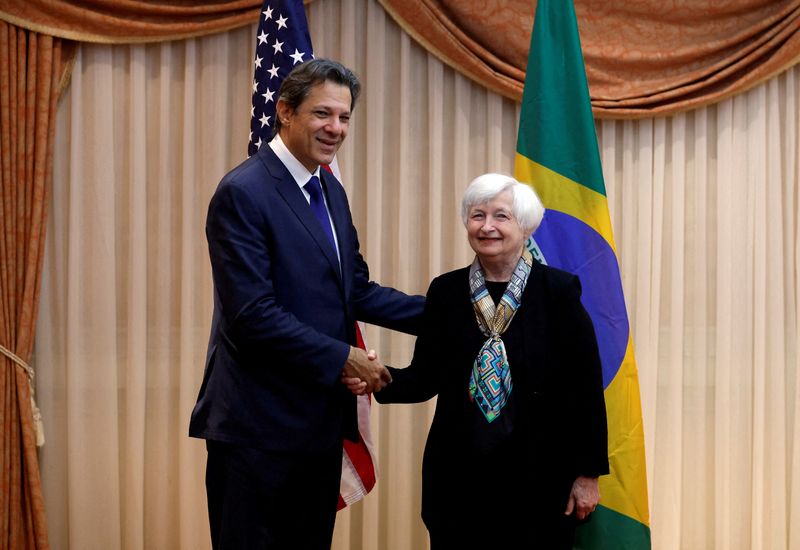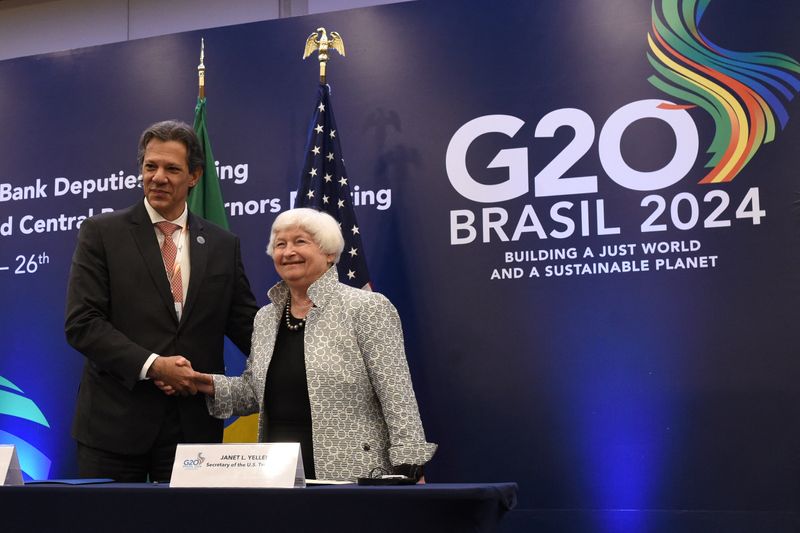Stock Markets
U.S. daily stock indexes up 0.1-1.9%

U.S. daily stock indexes rose on Friday, ending the week on solid gains thanks to data on a slowdown in U.S. inflation.
A report from the Labor Department released Thursday showed consumer price growth in the country had slowed to its lowest rate since January. The weakening inflation has boosted investor optimism that the Federal Reserve (Fed) will not have to raise its benchmark rate as high as expected, Market Watch noted.
U.S. stock index futures – What’s happening in financial markets?
Consumer prices (CPI) in the U.S. rose 7.7% in October compared to the same month a year earlier. Inflation slowed from 8.2 percent in September and was below the average forecast of 8 percent by analysts surveyed by Trading Economics.
“The October report should signal that Fed concerns about inflation will begin to ease,” notes SPI Asset Management managing partner Stephen Innes. – The market’s surge on this data is because investors weren’t expecting such a significant weakening in the pace of consumer price growth.”
Thomas Lee, an analyst at Fundstrat Global Advisors, believes that the U.S. inflation data for October is changing the situation in the U.S. stock market, and predicts its rise until the end of this year.
A University of Michigan report Friday showed U.S. consumer confidence falling to its lowest level since July. The preliminary value of the index calculated by the university in November was 54.7 points from 59.9 points a month earlier.
Americans’ inflation expectations for the medium term (next year) rose to 5.1% this month from 5% in October, and for the long term (5 years) to 3% from 2.9%, the report showed.
Support for the U.S. stock market on Friday was provided by signals of easing covid restrictions in China, which caused oil and metal prices to rise. China’s State Council announced a reduction in quarantine for people in contact with COVID-19 infected and those arriving in the country from abroad to five days from seven.
On Friday, cryptocurrency exchange FTX entered bankruptcy under Section 11 of the U.S. Bankruptcy Code, and its chief executive Sam Bankman-Fried left his post. Shortly before that, the head of the operator of the world’s largest cryptocurrency exchange, Binance Changpeng Zhao, said that the cryptocurrency sector is facing a crisis similar to the financial crisis of 2008, which could lead to the collapse of several companies in the sector in the coming weeks.
Earlier we reported that Fin Markets overreacted to data on slowing inflation in the U.S. — a member of the Board of Governors of the Fed.
Stock Markets
Paris Olympics broadcasters diverge on AI approach

By Sheila Dang
(Reuters) – The Paris Olympics will be a showcase of generative AI for American viewers but European audiences won’t see a similar approach, a contrast that reflects how global media companies are deliberating over the use of the technology.
Comcast (NASDAQ:)’s NBCUniversal is diving into AI for its U.S. broadcast of the Games, including re-creating the voice of a legendary sportscaster, while Warner Bros. Discovery (NASDAQ:)’s sports division in Europe said the tech is still too nascent for roles such as sports commentating.
Warner Bros. Discovery, which will stream the Games on its Max and discovery+ streaming platforms across Europe, received demos from tech companies to translate speech into other languages but the demos have lacked the emotion that comes with heart-racing sports moments, said Scott Young, senior vice president at Warner Bros. Discovery Sports Europe.
“In every part of their (demos), it feels like yes, you’ve translated the words correctly, but you haven’t translated or narrated the feeling,” he said.
For instance, when Italian sprinter Marcell Jacobs stunned the world by winning gold in the men’s 100 metres in Tokyo, Italian commentators screamed their reactions, showing the genuine moment of “experts sitting side-by-side, really living out that story,” Young said. “It is very hard to automatically generate that.”
Meanwhile, U.S. audiences will experience AI when they watch the Games on NBC or streaming service Peacock due to a new partnership between NBCUniversal, Google (NASDAQ:) and Team USA.
AI-enhanced Google Map images of the Olympic venues will help viewers get a feel of Paris and NBC’s hosts will demonstrate how Google AI search can answer questions about the competitions.
NBCUniversal will also use generative AI to create personalised daily briefings of the Olympic events, which will be narrated by an AI re-creation of sports commentator Al Michaels’ voice.
Almost seven million different variations of the daily recaps could be created over the course of the Paris Olympics, NBCUniversal said.
The media company has the largest Olympics broadcast rights deal in the world and paid $7.65 billion to air the Games through 2032.
The Olympic Broadcasting Services, which produces neutral coverage that can be used by media companies around the world, is also embracing AI to assist with quickly cutting vast amounts of footage into brief highlights, but previously told Reuters it remained wary of the risks of deepfakes and “tampering with reality.”
Given how quickly AI capabilities are advancing, it may not be long until European sports fans see more of the technology.

“We’re probably just one Summer Games away from where the real impact will be for us,” Young said.
The next Summer Games are the 2028 Los Angeles Olympics.
Stock Markets
Ultra Clean shares target raised, rating kept on strong outlook

On Friday, TD Cowen increased its stock price target for Ultra Clean (NASDAQ: UCTT) shares to $60 from the previous $55 while maintaining a Buy rating on the stock. The firm’s decision came after Ultra Clean reported a stronger-than-expected performance for the June 2024 quarter, which was primarily driven by robust spending on semiconductor processing equipment (SPE) in China, increased demand for high bandwidth memory (HBM), and advanced packaging equipment.
The company’s results for the past quarter outperformed expectations, bolstered by the aforementioned factors. In particular, domestic China SPE spending played a significant role, along with the demand for deposition and etching processes required for HBM manufacturing. Moreover, equipment sales for advanced packaging contributed to the company’s successful quarter.
Looking ahead, Ultra Clean’s guidance for the September 2024 quarter suggests a continuation of these trends. The company anticipates maintaining the momentum with similar driving forces contributing to its performance. Furthermore, growth is expected to extend through the fourth quarter of 2024 and into the calendar year 2025.
The analyst from TD Cowen expressed confidence in the company’s future, stating, “UCTT reported a June ’24 quarter beat attributed to strong domestic China SPE spending, high bandwidth memory (HBM) driving dep/etch demand, and equipment for adv. pkg. The Sept ’24 quarter guide sees much of the same before expected growth through C4Q24/CY25. Reiterate Buy; Price Target goes to $60.”
Ultra Clean’s revised price target and sustained Buy rating reflect the firm’s positive outlook on the company’s performance and growth prospects in the upcoming periods.
In other recent news, Ultra Clean Technology (UCT) reported robust financial performance for Q2 2024, with both revenue and earnings surpassing expectations. UCT’s Q2 revenue reached $516.1 million, a significant increase attributed to strong demand in the domestic China market and AI application suppliers. The company also received the Outstanding Partner Award from Piotech China, which further validates its industry standing.
In terms of future expectations, UCT anticipates Q3 revenue to be between $490 million and $540 million, with EPS ranging from $0.22 to $0.42. CEO Jim Scholhamer predicts sustained high business levels in China throughout the year, and marketing expert Cheryl Knepfler expects solid performance in the litho market moving forward.
These recent developments highlight UCT’s strategic initiatives and its readiness to capitalize on favorable industry trends in the high-tech manufacturing and services landscape.
InvestingPro Insights
Ultra Clean’s recent performance and the optimistic outlook from TD Cowen have been echoed in some of the real-time metrics from InvestingPro. The company’s market capitalization stands at $2.31 billion, and despite a challenging revenue decline of 20.71% over the last twelve months as of Q1 2024, there’s a silver lining with a quarterly revenue growth of 10.25% in Q1 2024. This suggests a potential turnaround or stabilization in the company’s financial performance.
InvestingPro Tips indicate that Ultra Clean is expected to see net income growth this year, which aligns with the positive momentum suggested by TD Cowen. Moreover, the company has sufficient liquid assets to cover short-term obligations, which is a reassuring sign for investors concerned about financial stability. For those looking to delve deeper into Ultra Clean’s financials and future prospects, InvestingPro offers a wealth of additional tips – 11 more to be precise, accessible through the dedicated company page.
Investors interested in Ultra Clean may also take note of the company’s price relative to its adjusted earnings, with a P/E ratio of -68.57, indicating that the market has expectations of future earnings recovery. With the next earnings date set for October 23, 2024, and a fair value estimate by analysts at $55, slightly above the InvestingPro Fair Value of $50.63, there seems to be a consensus on the stock’s potential upside. For those seeking to leverage these insights, don’t forget to use the coupon code PRONEWS24 to get up to 10% off a yearly Pro and a yearly or biyearly Pro+ subscription at InvestingPro.
This article was generated with the support of AI and reviewed by an editor. For more information see our T&C.
Stock Markets
US, Brazil to work together on climate partnership, says Yellen

By David Lawder and Marcela Ayres
RIO DE JANEIRO (Reuters) – The U.S. and Brazilian governments announced a climate partnership agenda on Friday, seeking to deepen ties on an issue they seen as key but treated as secondary by opposition in both countries.
Speaking on the sidelines of a G20 finance leaders meeting in Rio de Janeiro, U.S. Treasury Secretary Janet Yellen said that “advancing work on climate and on nature and biodiversity can bring benefits not only to both of our economies but also to the region and to the global economy.”
“We want to be more close,” said Brazil’s Finance Minister Fernando Haddad, adding he expected these guidelines to turn into concrete actions very quickly.
The joint work between the U.S. and Brazil, the two largest economies in the Western Hemisphere, will focus on four key areas, including efforts to facilitate countries’ ease of access to multilateral climate fund resources, a priority for Brazil during its G20 presidency this year.

Yellen also mentioned as pillars of this agenda the aim to bolster clean energy supply chains and efforts to improve the integrity and effectiveness of voluntary carbon markets.
Efforts to mobilize finance and develop innovative solutions to conserve and restore nature and biodiversity, including through multilateral development banks, are also on the agenda.

 Forex2 years ago
Forex2 years agoForex Today: the dollar is gaining strength amid gloomy sentiment at the start of the Fed’s week

 Forex2 years ago
Forex2 years agoHow is the Australian dollar doing today?

 Forex2 years ago
Forex2 years agoUnbiased review of Pocket Option broker

 Forex2 years ago
Forex2 years agoDollar to pound sterling exchange rate today: Pound plummeted to its lowest since 1985

 Cryptocurrency2 years ago
Cryptocurrency2 years agoWhat happened in the crypto market – current events today

 World2 years ago
World2 years agoWhy are modern video games an art form?

 Stock Markets2 years ago
Stock Markets2 years agoMorgan Stanley: bear market rally to continue

 Economy2 years ago
Economy2 years agoCrude oil tankers double in price due to EU anti-Russian sanctions

































